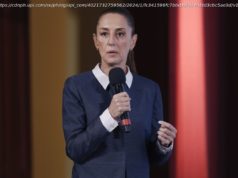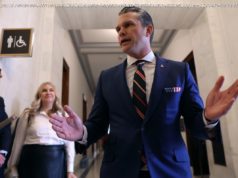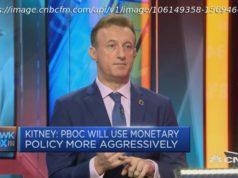SEOUL, South Korea (AP) — North Korean leader Kim Jong Un’s dispatch of a top lieutenant to the United States suggests that preparations for…
SEOUL, South Korea (AP) — North Korean leader Kim Jong Un’s dispatch of a top lieutenant to the United States suggests that preparations for a meeting between him and President Donald Trump are in the final stages. But history shows that such trips don’t always lead to summits: The high hopes raised by a similar North Korean mission 18 years ago ended up dashed.
Kim Yong Chol, the highest-level North Korean official to travel to the U. S. since 2000, was flying to New York on Wednesday. He is scheduled to meet Secretary of State Mike Pompeo on Thursday, according to U. S. officials familiar with the planning.
A vice chairman of the ruling Workers’ Party, Kim Yong Chol has been deeply involved in North Korean diplomacy this year. He is among the small number of North Korean officials who have accompanied leader Kim Jong Un to all four of his recent summits— twice with South Korean President Moon Jae-in and twice with Chinese President Xi Jinping. He also attended the closing ceremony of the Winter Olympics in South Korea in February at the start of Kim Jong Un’s charm offensive.
Kim Yong Chol, who is about 72, is a contentious figure outside North Korea.
Before taking responsibility for relations with South Korea in 2016, he was a four-star general and a military intelligence chief who is thought to have been behind a slew of provocations, including two deadly attacks in 2010 that killed 50 South Koreans and an alleged 2014 cyberattack on Sony Pictures. Both Seoul and Washington imposed sanctions on him in recent years.
He appeared at the Beijing airport Wednesday, and South Korean-based Yonhap News agency cited diplomatic sources as saying that Kim was on an Air China flight to New York that departed later in the day. It’s not known what else he will do in the United States besides meet Pompeo, who has visited North Kore twice recently to discuss a U. S.-North Korea summit.
The diplomacy in advance of the summit has had highs and lows, including Trump backing away from the meeting, then saying it could still happen in Singapore on June 12, as initially scheduled. U. S. and North Korean officials held preliminary talks at the Korean border and were expected to hold a separate set of working-level meetings in Singapore to discuss protocol, security and other logistical issues for the summit.
While Kim Yong Chol’s trip to the United States could further brighten the prospects, history shows that plans for a summit could still crumble.
In October 2000, then-leader Kim Jong Il, the current North Korean leader’s father, sent Vice Marshal Jo Myong Rok to Washington on a then-unprecedented goodwill mission. Jo, who died in 2010, remains the highest-level North Korean official to visit the United States since the end of the 1950-53 Korean War.
Jo’s trip came as the two countries were seeking closer ties following North Korea’s first-ever summit talks with South Korea in June 2000.
During his Washington visit, Jo met then President Bill Clinton, conveyed a letter from Kim Jong Il and met Secretary of State Madeleine Albright and Defense Secretary William Cohen. Jo said that improved relations «will be good for both countries and for peace and stability on the Korean Peninsula and the Northeast Asian region as well.»
About three weeks later, Albright made a historic reciprocal trip to Pyongyang to try to arrange a North Korea trip by Clinton. Some U. S. critics suspected Clinton was angling for a hasty foreign policy triumph in his last months in office.
During her stay in Pyongyang, Kim Jong Il took Albright to one of the mass games spectacles that included a giant mosaic displaying a rocket flying into the sky. «This will be our last missile,» Kim reportedly told Albright at the time, in an apparent reference to a medium-range ballistic missile the North fired over Japan two years earlier, which stunned the region.
The warming ties between the two countries chilled after President George W. Bush took office in January 2001, taking a tough line on the North. The nuclear confrontation deepened in 2002, with the Bush administration accusing North Korea of running a clandestine uranium enrichment program in breach of a 1994 disarmament deal.
Clinton eventually visited North Korea as a former president in 2009 to secure the freedom of two detained American journalists.






